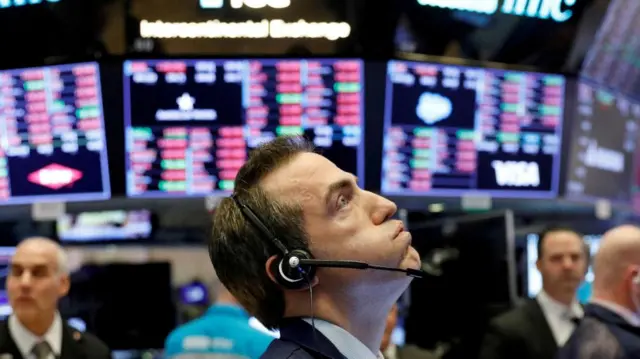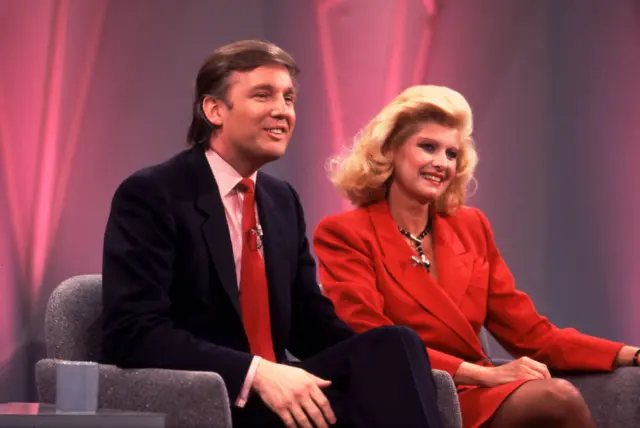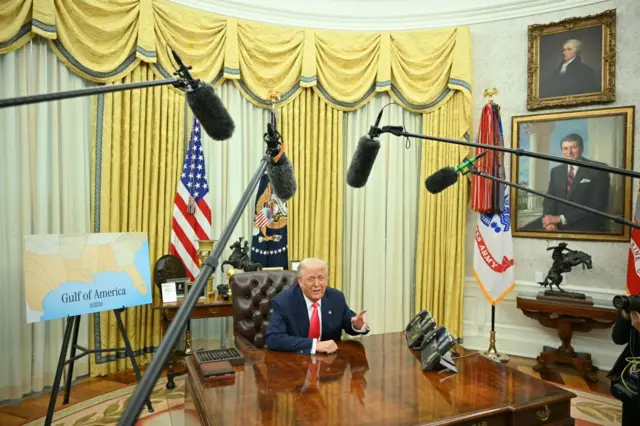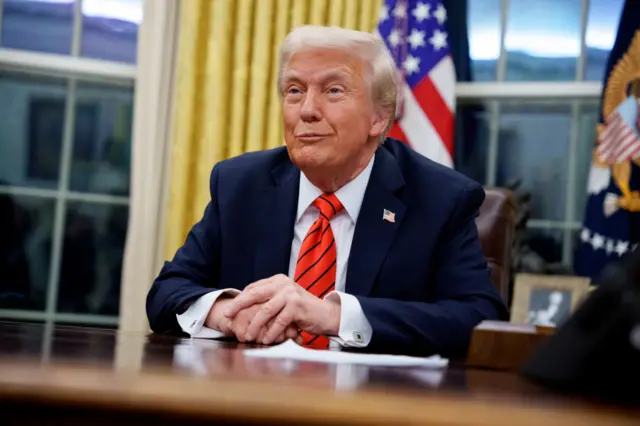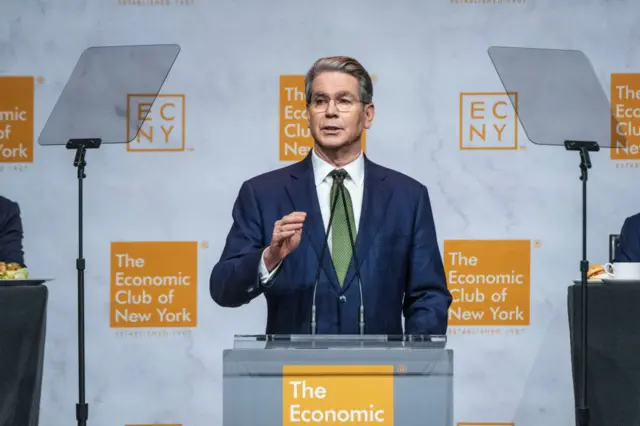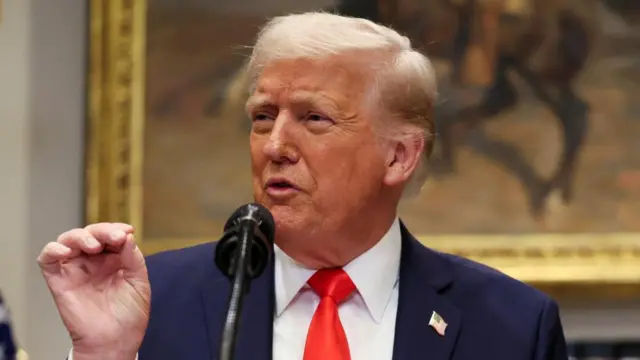One major question: Is this pause really temporary?published at 22:35 GMT 6 March
 Will Grant
Will Grant
BBC Mexico correspondent
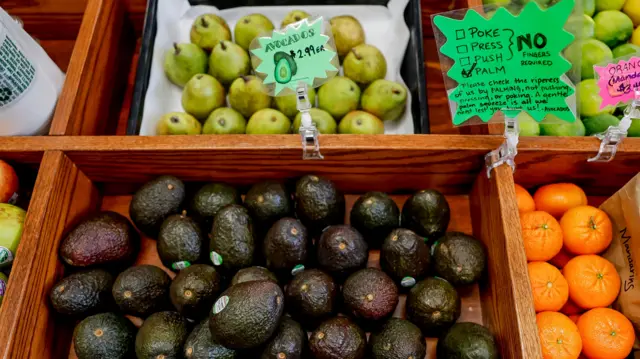 Image source, EPA
Image source, EPAOne of the biggest questions thrown up by this latest postponement on tariffs is whether it is merely another temporary stay of execution, or if it could lead to a more permanent cancellation of the threat.
On the one hand, Trump is unlikely to relinquish a tool he considers extremely effective, even if economists question the wisdom of that policy. At the very least, his supporters claim, threatening tariffs helps to bring people to the negotiating table on issues they might otherwise have been happy to ignore.
However, he runs a danger of becoming the boy who cried wolf on tariffs in North America.
It does no favours for the American, Mexican or Canadian economies to have this uncertainty hanging over them, and in due course a more robust and reliable trading relationship will surely be in everyone's interest.
The regional free trade agreement between the three countries - USMCA - is due for renegotiation next year, and it will be interesting to see if the neighbours have established a more normal working relationship by then.
Certainly a month-to-month threat of tariffs followed by last-minute cancellations doesn't seem sustainable.
We're ending our live coverage of today's tariff changes for now, but you can stay up-to-date on the latest here: Trump expands exemptions from Canada and Mexico tariffs
